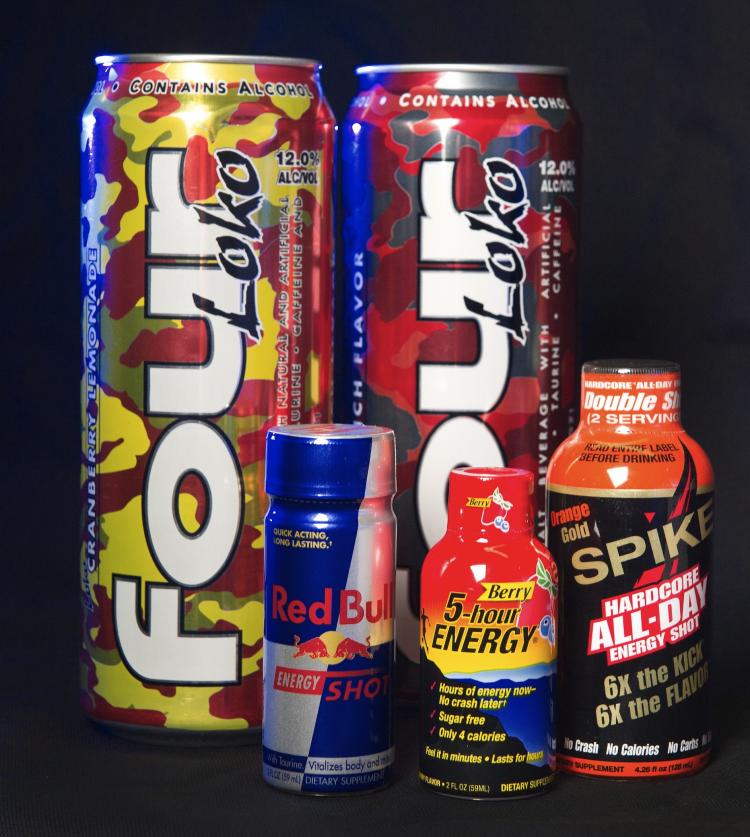Energy drinks have no therapeutic benefit and could affect children’s health adversely, particularly those who consume large amounts or have existing health problems, according to a study published by researchers from the University of Miami Miller School of Medicine in the journal Pediatrics on Feb. 14.
Energy drinks are classified as dietary supplements and promoted to increase energy levels, stamina, athletic performance, and concentration as well as to lose weight. Typical ingredients include sugar or sweeteners, vitamins, herbal supplements and, most importantly; large amounts of stimulants like caffeine, taurine, and guarana, which affect the cardiovascular system.
According to the study, energy drinks are the fastest growing commodity in the U.S. beverage market and are consumed by 30 to 50 percent of adolescents (12-18 years old). Together with children and young adults (19-25 years old), these age groups comprise half of the energy drink market.
However, the energy drink market is unregulated, and overdose can lead to seizures, stroke, or even sudden death. Some children are more at risk from drinking them for example those with cardiovascular, renal or liver disease, or diabetes.
“Until further research establishes their safety, routine energy drinks usage by children and teenagers should be discouraged,” said Dr. Steven E. Lipshultz, senior author of the study, in a University of Miami press release.
“We wanted to raise awareness about the risks. Our systematic review suggests that these drinks have no benefit and should not be a part of the diet of children and teens. We need long-term research to define maximum safe doses of these beverages and the effects of chronic use, especially in at-risk populations.”
Recommendations from the study included education by health care providers of children at-risk from adverse effects of energy drinks. Children with preexisting health issues, such as cardiac conditions, should receive counseling about the risks of products containing caffeine, including irregular heartbeat and sudden death.
The researchers also said long-term research is needed to understand the effects in at-risk groups and to implement regulations of sales and consumption, as well as toxicity surveillance.
Read the study at http://pediatrics.aappublications.org/cgi/reprint/peds.2009-3592v1
Energy drinks are classified as dietary supplements and promoted to increase energy levels, stamina, athletic performance, and concentration as well as to lose weight. Typical ingredients include sugar or sweeteners, vitamins, herbal supplements and, most importantly; large amounts of stimulants like caffeine, taurine, and guarana, which affect the cardiovascular system.
According to the study, energy drinks are the fastest growing commodity in the U.S. beverage market and are consumed by 30 to 50 percent of adolescents (12-18 years old). Together with children and young adults (19-25 years old), these age groups comprise half of the energy drink market.
However, the energy drink market is unregulated, and overdose can lead to seizures, stroke, or even sudden death. Some children are more at risk from drinking them for example those with cardiovascular, renal or liver disease, or diabetes.
“Until further research establishes their safety, routine energy drinks usage by children and teenagers should be discouraged,” said Dr. Steven E. Lipshultz, senior author of the study, in a University of Miami press release.
“We wanted to raise awareness about the risks. Our systematic review suggests that these drinks have no benefit and should not be a part of the diet of children and teens. We need long-term research to define maximum safe doses of these beverages and the effects of chronic use, especially in at-risk populations.”
Recommendations from the study included education by health care providers of children at-risk from adverse effects of energy drinks. Children with preexisting health issues, such as cardiac conditions, should receive counseling about the risks of products containing caffeine, including irregular heartbeat and sudden death.
The researchers also said long-term research is needed to understand the effects in at-risk groups and to implement regulations of sales and consumption, as well as toxicity surveillance.
Read the study at http://pediatrics.aappublications.org/cgi/reprint/peds.2009-3592v1








Friends Read Free